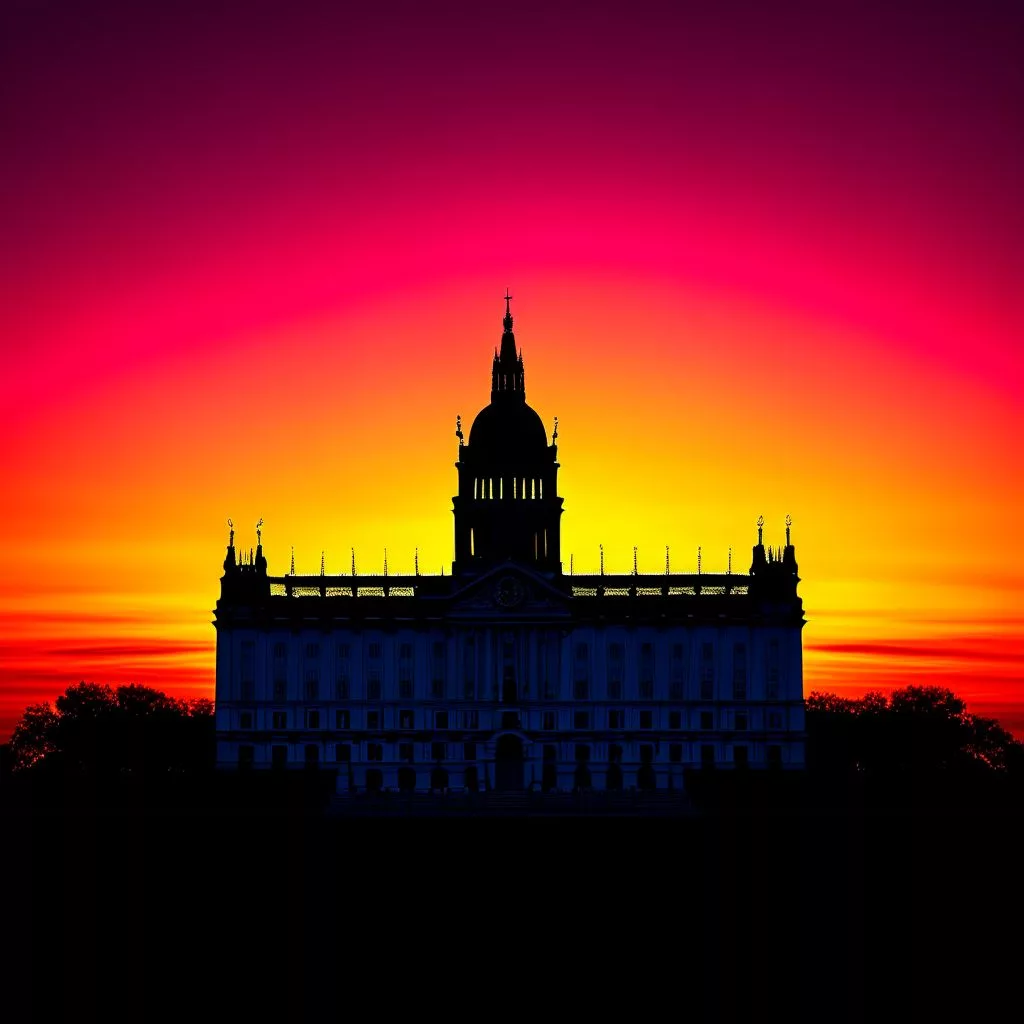On February 13, 2025, President Cyril Ramaphosa will speak to Parliament in a highly anticipated event that marks a key moment in South Africa’s democracy. His address aims to tackle important issues like jobs, education, and healthcare, reflecting the hopes and concerns of everyday citizens. The event will be broadcasted live, allowing people across the nation to connect with their government in real-time. As South Africa’s political landscape evolves, this moment symbolizes the power of dialogue and the country’s journey toward a brighter future.
What is the significance of President Ramaphosa’s address to Parliament?
President Ramaphosa’s address to Parliament on February 13, 2025, is significant as it responds to pressing socio-political issues in South Africa. This event symbolizes the country’s democratic evolution, offers a platform for dialogue, and reflects the aspirations of citizens regarding economic justice, education, and healthcare.
Setting the Stage for Dialogue
In the bustling political arena of South Africa, a significant event unfolds as President Cyril Ramaphosa gears up to address Parliament. This occasion, infused with historical significance, is not just a speech but a response to the intense discussions surrounding his recent State of the Nation Address. As South Africa’s democratic traditions provide a rich backdrop, this event promises to offer insights into the nation’s vibrant political discourse.
On February 13, 2025, at exactly 2:00 PM, the Nieuwmeester Parking Dome, strategically positioned at the busy crossroads of Commercial Street and Plein Street, will become the epicenter of democratic dialogue. Members of both the National Assembly and the National Council of Provinces will gather for a joint session. The meticulous planning and anticipation leading up to this day highlight its importance in South Africa’s political calendar.
South Africa’s State of the Nation Address is a time-honored tradition, echoing the grand rhetoric of historical political forums. Such occasions have long served as a stage for leaders to present their visions and connect directly with the populace. In this setting, President Ramaphosa stands on the cusp of tradition and modernity, ready to engage with the issues raised by parliamentarians over the previous two days of debate.
Media and Technology: Bridging the Gap
As anticipation builds in the city, media personnel race to secure their vantage points, with Malentsoe Magwagwa overseeing accreditation. Technology plays a pivotal role in ensuring transparency throughout this democratic process. The event is broadcast live on Parliament TV and streamed across digital platforms such as YouTube and Twitter, reaching audiences far and wide and connecting citizens to their government in real-time.
The event draws historical comparisons, evoking memories of influential political forums like the Roman Senate or the British Houses of Parliament. Once exclusive to the elite, these chambers have evolved into arenas for diverse societal voices. In South Africa, this evolution symbolizes the country’s transition from apartheid to a thriving democracy, a transformation mirrored in the dynamic debates within its parliamentary halls.
President Ramaphosa’s response is anticipated to be more than mere rebuttal; it will be a thoughtful discourse addressing the complex issues shaping South Africa’s socio-political landscape. From economic challenges to social reforms, the President’s reply is expected to resonate with both ordinary citizens and policymakers.
The Role of Political Movements
Reflecting on South Africa’s past, the influence of the Economic Freedom Fighters (EFF) cannot be understated. This dynamic political movement embodies the spirit of grassroots activism within parliamentary processes. Figures like Ms. Meisie Kennedy from Limpopo epitomize the EFF’s commitment to challenging the status quo and advocating for economic justice. Her contributions to various select committees underscore the significance of inclusive governance, tackling public infrastructure, economic development, and agricultural reform.
The narrative of South Africa’s political journey is woven with resilience and transformation. From the fight against apartheid to the establishment of a multi-party democracy, the nation’s history is a rich tapestry of diverse voices and visions. Each State of the Nation Address adds a new chapter, reflecting the people’s aspirations and challenges.
As President Ramaphosa readies his response, the air is thick with expectation. The questions raised during the debate transcend academic discourse; they echo the lived experiences of millions of South Africans. Topics such as employment, education, and healthcare are not merely policy points—they are the fabric of the nation’s social structure.
South Africa’s Global Stance
While the President’s reply will tackle contemporary issues, it also serves as a moment to consider South Africa’s role on the global stage. As a leader within Africa and a proponent of international cooperation, the country’s position will inevitably influence the discussion. In a world grappling with challenges like climate change and economic inequality, South Africa’s voice is crucial in shaping the global dialogue.
Parliament’s role in this process is indispensable. It represents democracy in action, a living testament to the power of dialogue and compromise. Here, elected representatives from diverse backgrounds converge, each contributing unique perspectives that enrich the debate. It underscores that democracy is not static but an evolving process, responding to new challenges and opportunities.
The anticipation surrounding President Ramaphosa’s reply is matched only by the significance of the event itself. It is a moment steeped in history and ripe with potential, a testament to the enduring power of dialogue and the necessity of responsive governance. As the world watches, South Africa stands ready to demonstrate the vitality of its democratic institutions and the resilience of its people. This occasion is not just a reflection of tradition, but a beacon of hope for the future, illuminating the path of progress and unity.
“`markdown
What is the date and time of President Ramaphosa’s address to Parliament?
President Ramaphosa is set to address Parliament on February 13, 2025, at 2:00 PM. This important event will take place at the Nieuwmeester Parking Dome, located at the intersection of Commercial Street and Plein Street.
Why is President Ramaphosa’s address considered a key moment in South Africa’s democracy?
The upcoming address is seen as a pivotal moment as it addresses pressing socio-political issues like jobs, education, and healthcare, reflecting the hopes and concerns of citizens. It symbolizes the evolution of South Africa’s democracy and the importance of open dialogue between the government and the people.
How will the address be broadcasted to the public?
The event will be broadcast live on Parliament TV and streamed across various digital platforms, including YouTube and Twitter. This ensures that citizens across the nation can connect with their government in real-time, fostering a sense of inclusivity and transparency.
What topics are expected to be addressed during the speech?
President Ramaphosa is expected to discuss vital issues such as employment, education, and healthcare. His address will also respond to the debates and concerns raised by members of Parliament, reflecting the lived experiences of millions of South Africans.
How does this event relate to South Africa’s historical political context?
This address draws historical comparisons to influential political forums like the Roman Senate, showcasing the evolution of South Africa’s political landscape from apartheid to a democratic society. It emphasizes the importance of diverse voices in governance and the ongoing struggle for economic justice and social reform.
What role do political movements, such as the Economic Freedom Fighters (EFF), play in this context?
The EFF and similar movements are vital in advocating for grassroots activism within Parliament. Their influence highlights the importance of inclusive governance and the need for addressing issues like economic development and public infrastructure, which resonates deeply with the aspirations of South Africans.
“`












